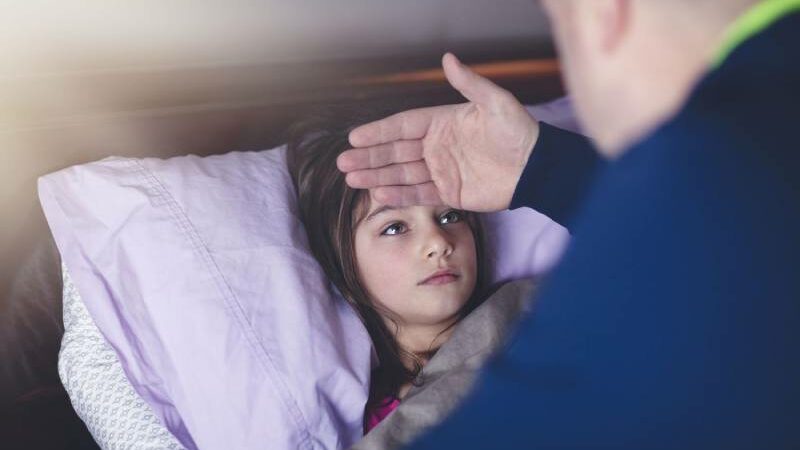Rotavirus is a diarrhea-causing virus that primarily affects children less than five. Although it spreads quickly, most cases may be treated at home, though severe instances may require hospitalisation. Getting vaccinated is the best defence against this.
What is rotavirus?
Rotavirus is an infection causing diarrhea, and is common for kids to face it at least once before they turn five. Early hints of this infection are a fever and barfing, followed by three to seven days of water-like diarrhea. It can sometimes also cause abdominal pain.
The dangerous aspect of this virus is that it can spread even two days before any symptoms appear. One of the main ways this sickness spreads is through poor personal hygiene, particularly when it comes to not washing your hands after using the restroom or changing your child’s diaper.
After that, it might spread to anything you touch, including food, toys, and cutlery. Other people may contract the virus if they come into contact with these contaminated items through their mouth.
When to need medical help
As a parent, you must take the initiative to get your child medical attention if they exhibit any of the following symptoms:
- diarrhoea that doesn’t go away after 24 hours
- frequent episodes of vomiting
- Black or bloody stool
- High fever, defined as 38.9 C or 102 F.
- Signs of tiredness, irritability, or severe pain
- symptoms of dehydration include dry mouth, tearless crying, infrequent urination, very high body temperature, and abnormally slow reaction times.
Adults are included as well, though. As an adult, you should to see a doctor if you:
- Can’t keep liquids down for 24 hours
- diarrhoea that lasts longer than two days
- You have blood in your stools or vomit.
- have a temperature greater than 39.4 C, or 103 F.
- Display symptoms of being dehydrated
How widespread is rotavirus?
Rotavirus typically affects children aged 3 to 35 months, especially those who spend a lot of time in childcare spots. Adults caring for young children and the elderly are also more vulnerable to contracting it. This infection peaks in the US in the winter and spring.
Don’t ignore the complications
Rotavirus can lead to serious diarrhoea and dehydration if left treated. Dehydration can become a potentially fatal condition if you don’t treat it quickly.
It is preferable to stay out of problems.
Hand washing is a common approach to practise good hygiene, however it’s not a guarantee. Because they don’t work against this virus, hand sanitizers are also ineffective.
Children should receive the rotavirus vaccination, according to the World Health Organisation (WHO). We are offering two vaccines: Rotarix and RotaTeq. Rotarix is given twice to babies at two and four months old, while RotaTeq is given orally three times when the child is two, four, and six months old.
These vaccinations are thought to be safe, and every year they prevent the infection in hundreds of children. An intussusception occurs when a portion of the gut folds back on itself. This is an uncommon side effect.
Call your doctor immediately if you notice any symptoms following the rotavirus vaccination, such as nausea, vomiting, diarrhoea, bloody stools, or changes in your child’s bowel habits.
In summary, rotavirus is a common, highly contagious virus that primarily affects children and causes severe diarrhoea. Although keeping hygiene might help prevent its spread, immunising your child is the best line of defence.
Children who receive prompt and appropriate care can recover from it with just minor problems. The important thing is to get your child checked out as soon as you notice any symptoms of sickness.
- Top 5 Health Insurance Stocks to Add to Your Portfolio - July 26, 2024
- 7 Reasons Edamame is Great for Your Health - July 26, 2024
- 2024 Paris Olympics: How Many US Athletes Are Competing? - July 26, 2024





